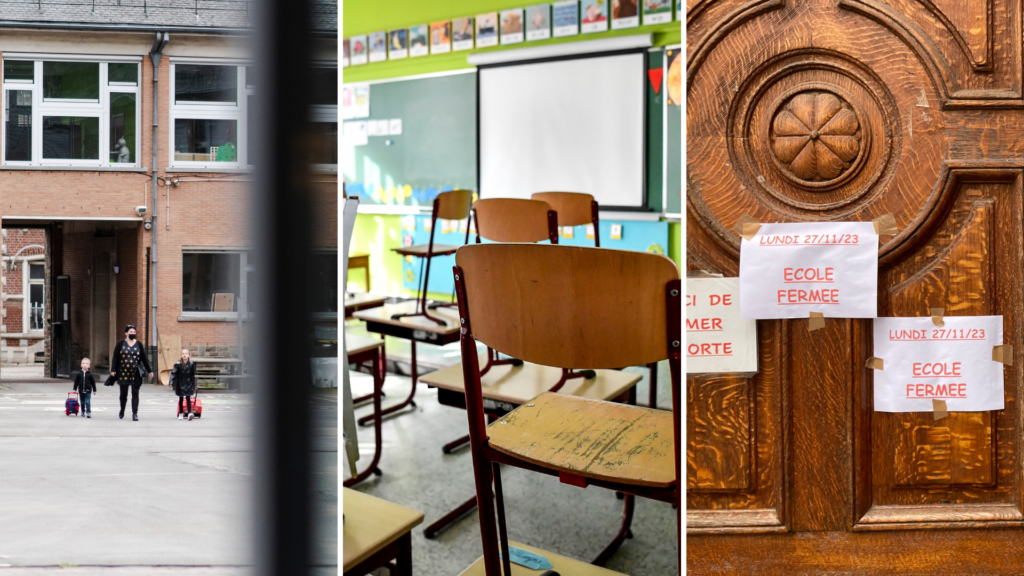What should be zones of calm for the instruction of the next generation have again had their tranquillity broken as 30 primary schools in Belgium's French-speaking education system were forced to remain closed on Monday after receiving a malicious email containing a bomb threat.
The incident highlights how ill-meaning troublemakers can wreck havoc with minimal effort: more than 10,000 pupils were obliged to remain at home and the resulting childcare costs an untold multiple of this. Meanwhile, the cost to forces of law and order were also great, as each establishment had to be searched thoroughly before the threat could be considered a hoax.
More worryingly, the education authorities report that the number of threats made against schools has been rising in recent months, a major impact on the level of schooling as precautionary measures come with widespread disruption. Some have questioned whether the penalties are sufficiently severe: prison sentences range from three months to two years and fines between €400 and €2,400.
But the search for perpetrators is long-winded and often unsuccessful. Already at the start of this academic year, francophone schools were hit by protests against a new sexual and relationships education programme, a patently sensible and low-intervention introduction that was grossly misrepresented in a scaremongering campaign that subsequently investigation showed to be exploited by conspiracy theorists.
Aside from the misinformation that damaged trust in institutions, the hysteria led to several schools being targeted by arson attacks, damage that remains unaccounted for.
Which may be what makes this latest wave of threats such a concern, early education is a pillar of our modern lives. Attacks or threats should be treated as an attack on our society as a whole.
Belgium in Brief is a free daily roundup of the top stories to get you through your coffee break conversations. To receive it straight to your inbox every day, sign up below:
1. New HIV diagnoses in Belgium up by 14% last year
Annual trends have fluctuated since the Covid-19 pandemic, but there were nevertheless nearly 600 new HIV diagnoses in Belgium last year – a 14% rise compared to 2021, according to the national Sciensano health institute. Read more.
2. 'This is not impossible': Belgian PM wants 20-year nuclear reactor extension
Belgian Prime Minister Alexander De Croo has said that the next Belgian Government should "definitely consider" extending the lifespans of Belgium's two newest nuclear reactors by twenty years. Read more.
3. 'China is like Japan in the 80s': Specialist reflects on Western-Asian relations
The current political and economic tensions between China and the West very much resemble the disputes between Japan and the US in the 1980s, a leading expert on Western-Asian relations has claimed. Read more.
4. Love at first swipe: New chat-free dating app 'Breeze' launched in Brussels
Brussels is a city of singles, but many are dissuaded from dating apps because of the awkward small talk upon 'matching'. Luckily, a new dating app has just the solution. Read more.
5. Sinterklaas will answer children's letters in Brussels Central Station
As is tradition in Belgium around this time of year, children send letters and drawings to Sinterklaas to ensure him they have been well-behaved over the past year so they will receive presents on 6 December. But this year, they can also bring their letter to the Sinterklaas Vault. Read more.
6. Rock Werchter festival announces 11 new acts for next summer
After the Rock Werchter music festival previously announced headliners Foo Fighters, Dua Lipa and Måneskin for next summer, the organisation is now releasing another 11 acts that will be performing in early July. Read more.
7. Hidden Belgium: Neuzekes
It started in 2011 on the pretty Groentenmarkt in Ghent. A trader had set up a wooden cart in the square piled high with the popular local sweets known as neuzekes. Read more.


